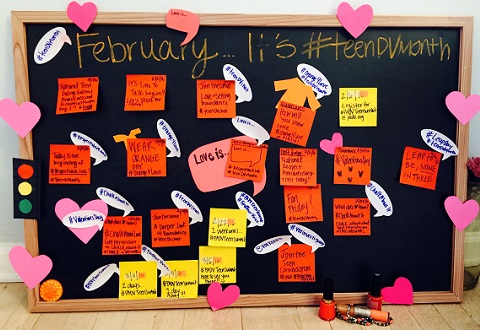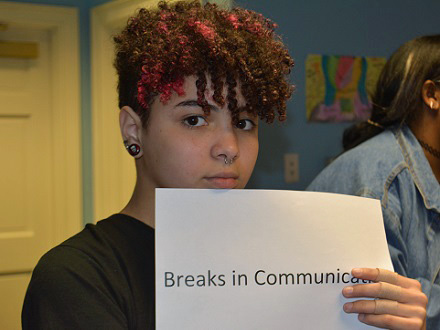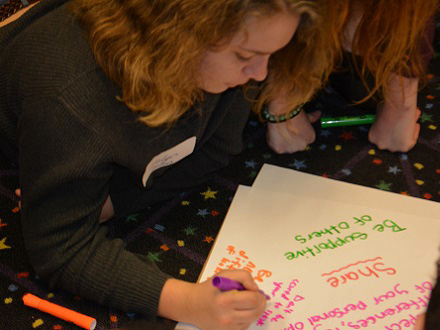Contributed By Claire Lisco
 Did you know? One in three teens in the U.S. is a victim of physical, emotional or verbal abuse from a dating partner. According to the Youth Risk Behavior Survey, dating abuse among teens is associated with a range of negative health consequences, including substance use, depression, sexual risk-taking behaviors, suicide and abuse in future intimate partner relationships (CDC).
Did you know? One in three teens in the U.S. is a victim of physical, emotional or verbal abuse from a dating partner. According to the Youth Risk Behavior Survey, dating abuse among teens is associated with a range of negative health consequences, including substance use, depression, sexual risk-taking behaviors, suicide and abuse in future intimate partner relationships (CDC).
February is National Teen Dating Violence Awareness and Prevention Month. Crucial to awareness and prevention efforts is helping teens learn how to recognize the warning signs of unhealthy or abusive relationships and how to create an individualized safety plan for themselves or a friend in need.
Warning signs, or red flags, are signals that indicate a potentially unhealthy or abusive relationship, and unfortunately are NOT always obvious. Examples of warning signs include:
 Gets angry quickly;
Gets angry quickly;- Makes false accusations or is possessive, jealous or insecure;
- Belittles or puts his/her partner down;
- Wants to get “serious” really quickly;
- Has seen or experienced abuse at home; and
- Is extremely charming.
Warning signs also exist for digital abuse and may include:
- Dictates who his/her partner is friends with on Facebook;
- Sends negative, insulting or threatening emails or messages on social media platforms;
- Insists on having passwords or looks through phone; and
- Texts to the point that his/her partner feels he/she cannot be away from the phone.
If you or a friend recognize any of the warning signs above or are otherwise impacted by teen dating violence, it’s important to get help by utilizing various resources.
- Talk to someone. Chat with a trained peer advocate by texting loveis to 22522, calling 1-866-331-9474 or clicking on the “Chat Online Now” link at this website.
- Find and talk to a trusted adult. Try to find a teacher, family member, parent or friend’s parent that you feel safe talking to, won’t blame you for what’s happening and can help you develop a plan for addressing the issue.
- Make a safety plan. Identify resources and an individualized plan with strategies for staying safe emotionally, physically and across the various places and environments frequented on a daily basis.
To help raise awareness and prevent teen dating violence in your community and beyond, you can become a peer advocate! Follow these steps to get started:
 Get involved in promoting healthy relationships and preventing dating violence among teens. Participate in activities throughout National Teen Dating Violence Awareness and Prevention Month (e.g., It’s Time to Talk Day, Respect Week and Wear Orange Day).
Get involved in promoting healthy relationships and preventing dating violence among teens. Participate in activities throughout National Teen Dating Violence Awareness and Prevention Month (e.g., It’s Time to Talk Day, Respect Week and Wear Orange Day).- Check out your state’s resources and laws for teens impacted by dating violence. Teens, relative to adults, face additional barriers to seeking legal support given differing state laws. You can also learn more about teen dating violence laws here.
Claire Lisco is a Teen Empowerment Advocate with the Partnership Against Domestic Violence. PADV provides free prevention education programming on teen dating violence and healthy relationships to schools and youth serving organizations throughout Georgia. For more information, visit www.padv.org or call (404) 870-9600.
